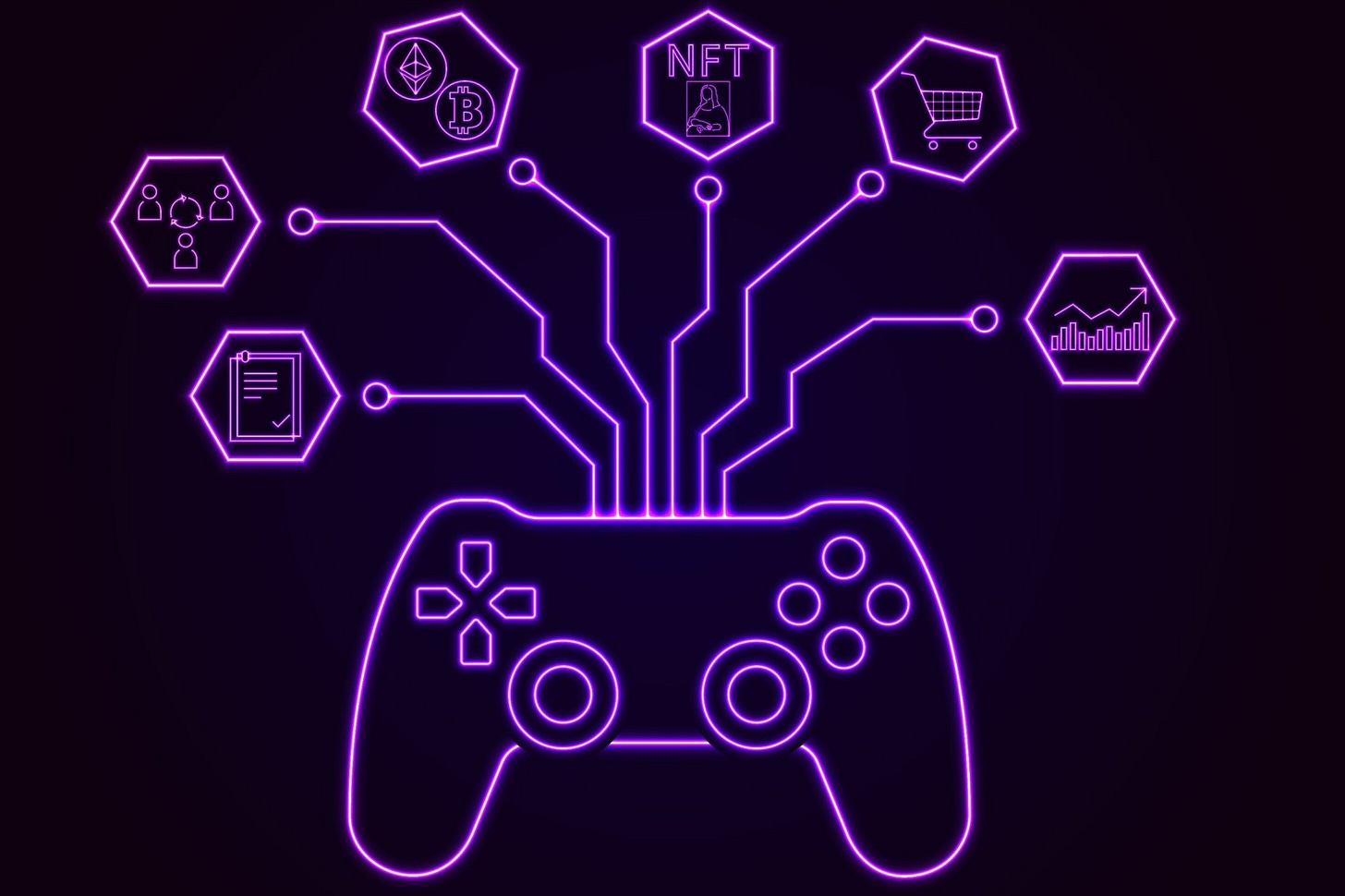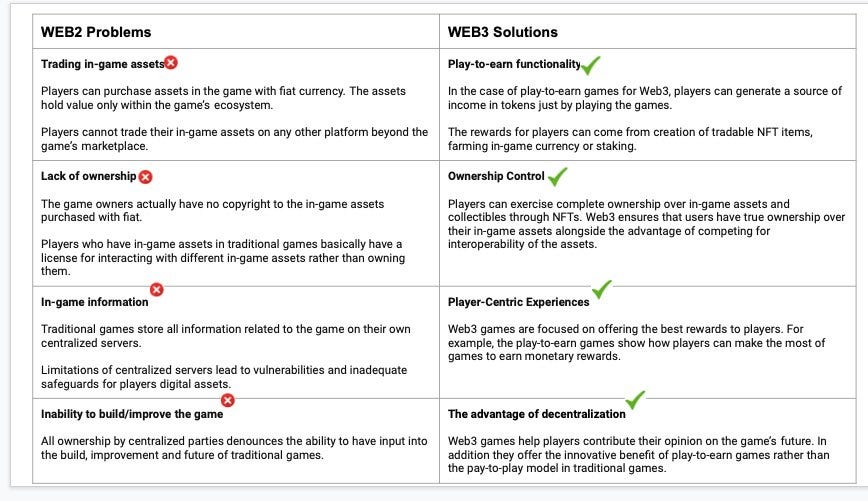Welcome and thank you to all the readers who signed up last week (we’re 481 members strong!).
In the last edition of 0xPlay, we explored about bans & adverse impact they have on an ecosystem. Today we’re going to be talking about emerging tech & the role they play in adoption & whether they replace older models in the games industry.
If you enjoy reading 0xPlay and would like to continue the conversation, you can reach out to me on Twitter
Now bear in mind, this exploration will not be talking about the past trends, merits & how emerging tech have shaped our ecosystem. This isn’t an exploration or a rant on web3/web3 skepticism. It’s about looking at emerging tech through a different lens & looking at past integrations.
Image Credit
I’ve been a retail investor in blockchain tech for a while, I’ve also done fair bit of work in researching projects, understanding trends & avoiding rugpulls. While #web3 has inherent problems when it comes to on-boarding, trust & distribution across platforms.
We’ve all heard one strong narrative being pushed through “web3 solves this”, or how web2 games are inherently broken & the world needs web3 or how web3 will be the next internet platform
For all intents & purposes, it could be & I’m sure we’ll have over-reaching impacts of this ethos on how we develop, consume & distribute products in the coming decades.
I’m not a skeptic, I’m a realist & while emerging technologies should be embraced. It has to take its time to adapt, evolve & create a better setting for everyone.
If people keep using a trendy word-salad when it comes to web3 and how it’s solving all problems, how every product is about community & how everything done before in this industry is worthless. They need to look inwards, after all there’s a fine line between adoption & cult-like evangelism.
Sadly, majority of web3 space falls into the latter half & this maybe isn’t a problem(yet). After all, if we didn’t have a similar type of zealots for the internet. The world as we know would be a very different place.
The Context:
Over the course of my journey in researching blockchain tech & how studios can utilise it within the games industry. I’ve had to face a barrage of posts, tweets & content-pieces on how web3 solves for the “fallacy” in the games industry. For easier context, here’s a quick look:
Yes, these are problems that exist. Yes there needs to be improvement in how publishers & studios tackle games as a medium.
While these issues remain valid & there have certainly been a lot of different ways to explore and tackle these problems. We cannot blankly state that web3 and its ethos will solve problems in the games industry.
When we take a look at how emerging technologies have played a part in the games industry, we can definitely see something askew perhaps…
OnLive is the future of Gaming [2009]
Ouya will enable mass development [2013]
Is Cloud Gaming the future? [2015]
VR Gaming is the future of entertainment [2017]
My point is simple, emerging technologies play a vital part in adoption, there have been many strides in both hardware & software development in the last decade. Something that has enabled the games industry to propel & have a massive growth-story.
When we look at the last two decades, between op-eds, news items & podcasts. We’ll see an in-fighting between models and similar dichotomy of trends, emergences & developments fighting to be the “future”.
1. PC vs Console
2. F2P vs Premium
3. Mobile vs Console/PC
4. AR vs VR
And now Web2 games vs Web3 games
As an industry, we’re on track for excellent growth & will be crossing the $200Bn mark. While these developments in emerging technologies have helped in creating a better ecosystem. We haven’t yet seen any particular tech envelop the entire industry.
The Reality:
The reality is that, different platforms, models & advancements help in reducing barriers for entry, provide great ways to generate immersive player experiences & create possibilities for greater ROI for publishers and studios.
These advancements are all excellent subsets of the industry. As more & more people get exposed to video games as a medium. They find their “tribe” or their platform, their console, their devices to be part of this beautiful ecosystem.
Naturally, we start seeing phenomenal growth across all areas & we definitely have an intersection of users across different spectrums (console players who play mobile games, mobile gamers who have VR headsets, mobile F2P players who purchase premium PC/Console games etc)
Whenever any of these new models & advancements came in, they did disrupt but didn’t envelop the entire industry. They merely created a separate subsection of the industry & users/players would adopt them if the IP or platform interested them.
What most of the users are really chasing is “fun”. Players love an honest & engaging experience more than anything. There’s an inherent fallacy if we believe that all “web2” gamers are seeking ownership, decentralisation & governance.
Sure, there definitely ARE users who want that, but not EVERYONE. And that’s something that goes unsaid these days in this era of echochambers where many convince themselves that web3 games will envelop the entire industry.
Players deserve ownership, they deserve respect & they deserve to be heard across the board. We need to remember that it’s a marathon, not a sprint. The games industry is vast enough to accomodate different models, platforms & tech.
Blockchain gaming has a bright future ahead, it’s going to have expontential growth (across revenue & user acquisition), it will aid in the adoption for web3 & create giants in the process. Maybe there’s a reason why major publishers like EA, Ubisoft, Garena & Square Enix (among others) are exploring the intersection of blockchain gaming with traditional & newer IPs.
Instead of creating in-fighting between “the old and the new”, we must focus on creating a better experience in this shared ecosystem for ALL our players.






